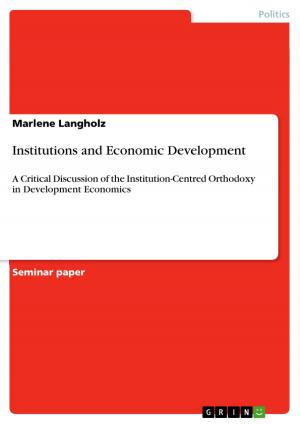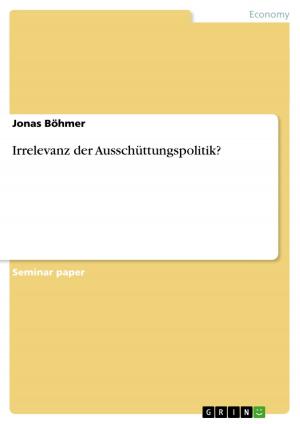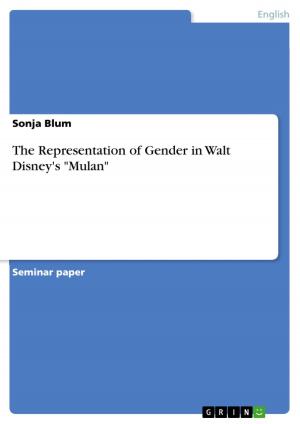Procedural Justice Organizational Ethics Issue Resolution in the Automotive Manufacturing Industry
Business & Finance, Management & Leadership, Management| Author: | James Tallant | ISBN: | 9783640841370 |
| Publisher: | GRIN Publishing | Publication: | February 22, 2011 |
| Imprint: | GRIN Publishing | Language: | English |
| Author: | James Tallant |
| ISBN: | 9783640841370 |
| Publisher: | GRIN Publishing |
| Publication: | February 22, 2011 |
| Imprint: | GRIN Publishing |
| Language: | English |
Essay from the year 2008 in the subject Business economics - Business Management, Corporate Governance, grade: 97.00, University of Phoenix, course: MGT 344 Organizational Behavior and Ethical Responsibility, language: English, abstract: Procedural Justice: Organizational Ethics Issue Resolution in the Automotive Manufacturing Industry Businesses and organizations face difficult ethical decisions daily. With the advent of a global economy, U.S. companies face difficult decisions on how to remain competitive in the new larger global economy. Often organizations face the difficult ethical issue of laying off U.S. workers and outsourcing those jobs to foreign countries. The U.S. manufacturing industry, especially the automobile manufacturers has had a difficult time remaining competitive in the world market. For example, the big three U.S. automobile manufacturers, Dodge, Ford, and General Motors all have had to close plants, layoff employees, and move operations overseas by outsourcing to remain competitive. Outsourcing jobs is a difficult ethical question and issue. However, by following the steps of the procedural justice process which is 'a deliberate systematic decision-making process that can help you promote ethical standards of practice and ensure ethical conflicts are appropriately addressed' (Nelson, 2005, p.1, ¶1). Six main steps of the procedural justice process will be discussed as it relates to outsourcing of jobs: (1) Issue clarification, (2) Stakeholder analysis, (3) Values identification, (4) Issue resolution, (5) Addressing objections, and (6) Resolution implementation.
Essay from the year 2008 in the subject Business economics - Business Management, Corporate Governance, grade: 97.00, University of Phoenix, course: MGT 344 Organizational Behavior and Ethical Responsibility, language: English, abstract: Procedural Justice: Organizational Ethics Issue Resolution in the Automotive Manufacturing Industry Businesses and organizations face difficult ethical decisions daily. With the advent of a global economy, U.S. companies face difficult decisions on how to remain competitive in the new larger global economy. Often organizations face the difficult ethical issue of laying off U.S. workers and outsourcing those jobs to foreign countries. The U.S. manufacturing industry, especially the automobile manufacturers has had a difficult time remaining competitive in the world market. For example, the big three U.S. automobile manufacturers, Dodge, Ford, and General Motors all have had to close plants, layoff employees, and move operations overseas by outsourcing to remain competitive. Outsourcing jobs is a difficult ethical question and issue. However, by following the steps of the procedural justice process which is 'a deliberate systematic decision-making process that can help you promote ethical standards of practice and ensure ethical conflicts are appropriately addressed' (Nelson, 2005, p.1, ¶1). Six main steps of the procedural justice process will be discussed as it relates to outsourcing of jobs: (1) Issue clarification, (2) Stakeholder analysis, (3) Values identification, (4) Issue resolution, (5) Addressing objections, and (6) Resolution implementation.















